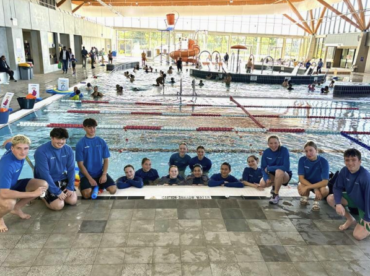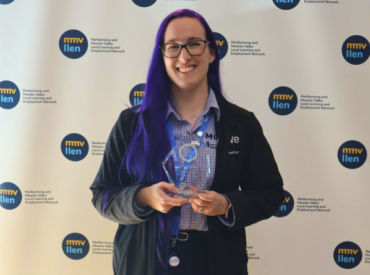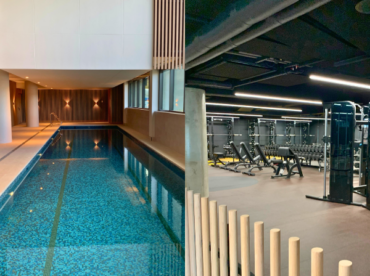One of the most daunting things a parent will remember about their baby or toddler’s first swimming lesson is the initial submerging of the entire body underwater. Capturing one’s own breath in your throat for just a millisecond as your little one re-emerges above the water, reminds parents just how important and essential swimming lessons are to our children.
“Our Splish Splash Aqua Playgroup is designed for babies six months and under to become familiar with water in the secure arms of their parent or carer. We have approximately 12 babies per class with their parents or carer and the majority of participants go on to become GOswim members,” said Sarah Vaughan, swim Instructor at Gurri Wanyarra.

“Many of our first-time parents are nervous as they dip their toes into the water with their most precious little human, but we’re here to support them and alleviate any anxiety they may be feeling.
“By working with parents, carers and their children, our instructors form valuable relationships with families. We’re privileged to watch little ones grow and reach new milestones every time they are in the pool with their parent and carer. It’s great to see the parents let go a little too as they see their child becoming more confident,” Sarah said.
As much as little babies love to splash and play in the water, so too do our six-month to three-year-old Preschool GOswim learners. “Preschoolers are so much fun and truly make the most out of their sessions. There are always lots of laughs and cheers as every adult accompanying their own child, supports other children in the session,” Sarah said.
Based in regional Victoria, Gurri Wanyarra’s closest beach is three hours away. Many families in the local area have a private pool or visit Gurri Wanyarra as part of their health and wellbeing.
“Swimming and water safety are essential life skills and can be taught from a very early age. By exposing children as young as three to six months to a swimming pool; parents, carers and swim instructors are providing children with the foundational skills to safely play and live in areas where there may be water hazards.
“As children become self-aware and motor skills more prominent, swimming instruction further develops skills where cognitive and spatial learning supports health and wellbeing outside of the pool.
“We love teaching people how to swim and how to be safe around water. Our community relies on our skills and knowledge to provide their children and family members with the best balance of having fun and staying safe when it comes to water,” Sarah concluded.




